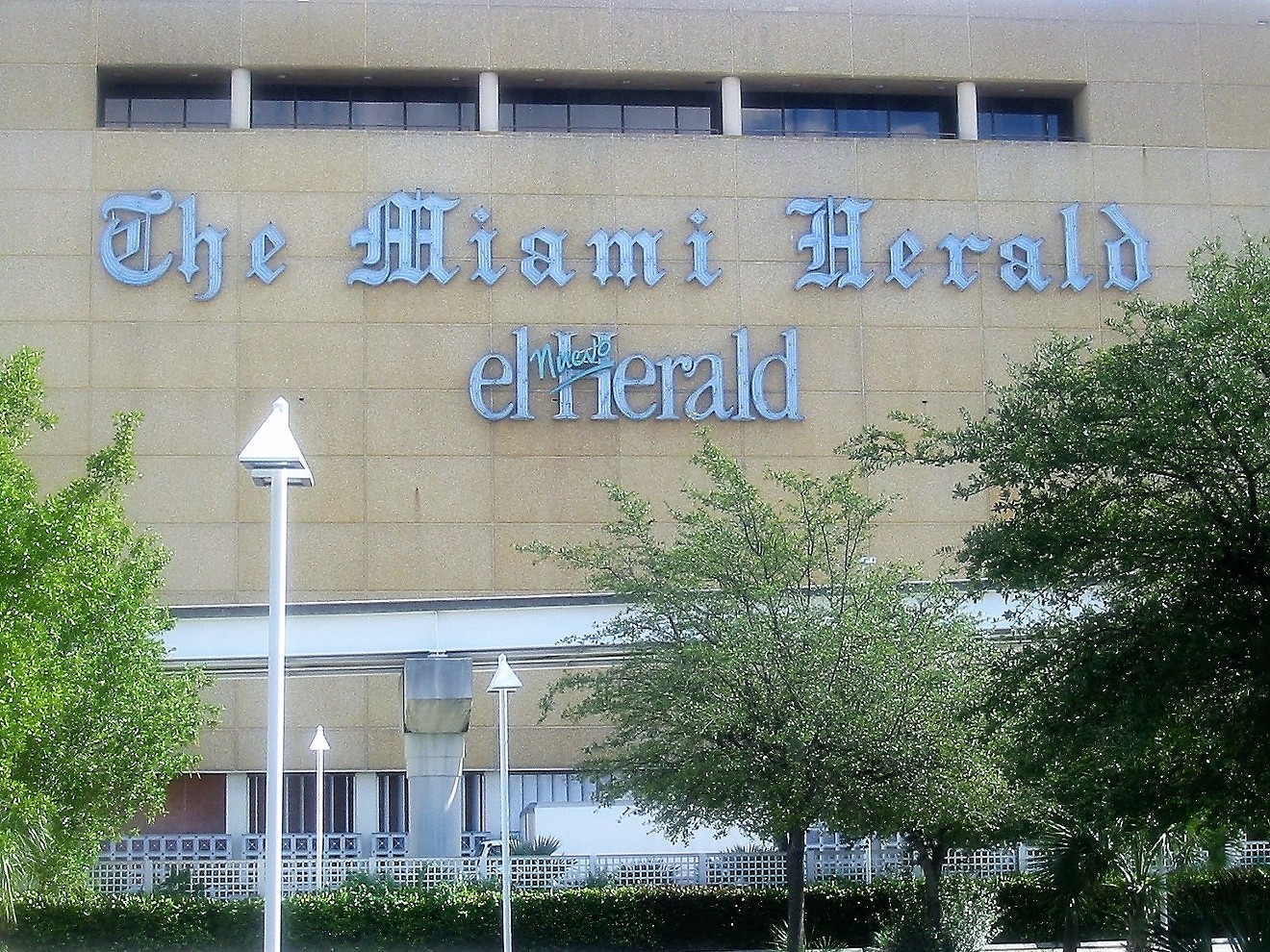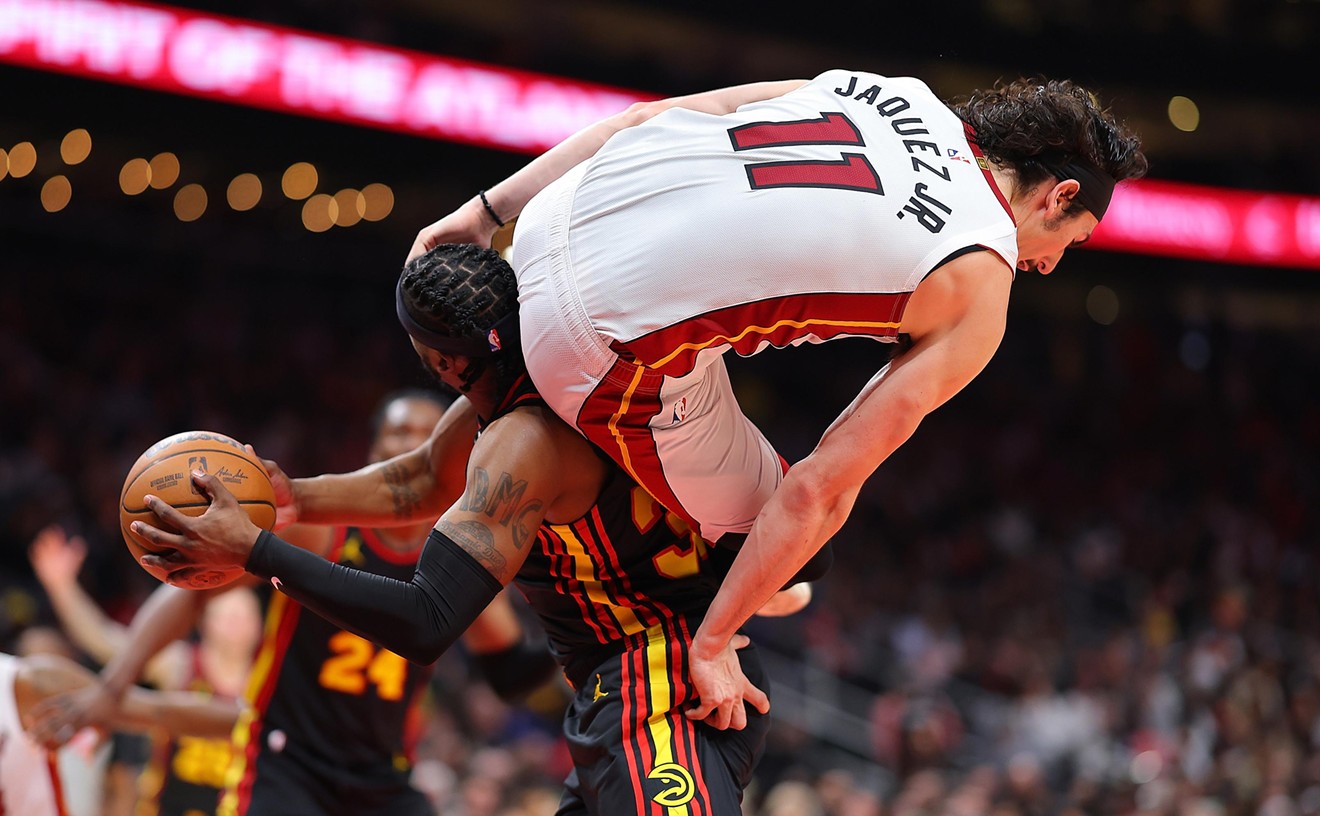In February, the Herald's parent company, McClatchy, filed for bankruptcy after years of declining print advertisement revenue. The announcement followed significant staffing cuts at the Herald and other McClatchy papers, including a 2019 buyout offer for 225 employees across McClatchy.
In January, the Herald eliminated 70 positions as it shut down its own printing operation. Six months later, the paper shed its office building in Doral owing to budget constraints.
Chatham Asset Management, a New Jersey-based hedge fund, purchased McClatchy and its properties in August, despite efforts on the part of the newsroom union, One Herald Guild, to find a different buyer. (Hedge funds like Chatham are notorious for buying newspaper chains only to slash their operating costs.)
"This has been an invigorating time and an enormously challenging time. We've felt like we were under siege," says Mary Ellen Klas, the Herald's capital bureau chief and co-chair of One Herald Guild. "There's enormous uncertainty for what direction this will mean for us."
During the pandemic, ad revenue has drastically tanked across the board, leaving many newspapers in the same vulnerable position as the Herald: open to purchase by hedge funds or at risk of closing up shop.
On top of that tumult, the Herald has weathered backlash and media attention brought about by two back-to-back scandals that played out on social media.
In late August, sports columnist Armando Salguero tweeted his disdain for athletes who protest against racial injustice and police violence and shared a link to an article that falsely claimed the U.S. Constitution's so-called three-fifths compromise was "anti-slavery."
Herald publisher and executive editor Mindy Marques responded that columnists have more leeway than reporters to express their opinions on social media, a statement that led to negative feedback from readers. Within the Herald itself, employees condemned Salguero's comments as racist, prompting many reporters to call for deeper conversations about race in the newsroom.
Only two weeks after the Salguero fiasco, a reader discovered an insert in the September 11 issue of El Nuevo Herald, the Herald's Spanish-language publication, that included racist and anti-Semitic remarks.
The insert, called "LIBRE," included a column that compared Black Lives Matter and antifa to Nazis and condemned Jewish people who supported the groups.
"What kind of people are these Jews? They're always talking about the Holocaust, but they've already forgotten Kristallnacht, when the murderous Nazis razed Jewish businesses in all of Germany," columnist Roberto Luque Escalona wrote in Spanish. "The same thing is being done by BLM and Antifa, only the Nazis didn't steal, they only destroyed."
LIBRE is a Spanish publication run by Demetrio Perez Jr., who at one point was placed on house arrest for overcharging elderly tenants and submitting fraudulent reports to the government in order to receive subsidy payments.
The racist LIBRE column — and the fact that a magazine run by a felon would run in El Nuevo Herald — garnered fierce reprisals from readers and local politicians on social media. Many condemned the piece and criticized the Miami Herald for distributing copies of LIBRE.
Days later, Marques and El Nuevo Herald managing editor Nancy San Martín published a joint column explaining that the paper had a contractual agreement to publish and distribute copies of LIBRE in its Friday editions and had been doing so since January.As a Jew, a Hispanic Democrat, but most of all as a human being, this is unacceptable!
— Annette Taddeo (She/Her/Ella) (@Annette_Taddeo) September 12, 2020
All of us-regardless of party affiliation-have an obligation to repudiate & condemn this anti-Semitic & racist message which should have no place in American politics! #DemCast #DemCastFL https://t.co/RV5coLeSgH
After reviewing several copies of LIBRE from earlier this year and finding similar instances of racist content, Marques and San Martín wrote that they had ended their relationship with LIBRE and would never print its material again.
Marques has temporarily stepped away from the Herald, according to emails obtained by New Times.
A McClatchy spokesperson tells New Times via email that Marques remains the publisher and executive editor, and that she actively participated in the internal review of the situation. Yesterday, the Herald published the results of its investigation, finding that there "was no formal content review" for the paid insert.
With the intense, polarizing energy of the current moment leaving everyone on edge, many people have expressed disappointment with the Herald, and several readers have threatened to cancel their subscriptions in light of the recent controversies.
For the news reporters at the Herald who have continued to work amid an unprecedented pandemic, momentous racial-justice protests, and one of the most closely watched election seasons in recent memory, this year has presented a series of challenges.
"I've covered a lot of crazy stuff over the years, from Parkland to Pulse to plane crashes, but this year has been everything all at once," says David Ovalle, a Miami Herald reporter since 2002.
Ovalle tells New Times that the staff at the Herald has become even more tight-knit after budget cuts left the newsroom with a fraction of the reporters it once had. He says that although the Herald has had its fair share of controversies over the years, its reporters have always continued doing good journalism.
Even so, the recent controversies with Salguero and LIBRE have dealt a further blow to morale.
"You look at it and you feel so disillusioned because it seems so needless," Ovalle says. "The reporters have all done a really good job and worked well together. When these things come along, it's dispiriting because it distracts from the work we've done."
Some employees have expressed shock and disappointment at the Herald's responses to the controversies, particularly at a time when many are coming to grips with the reality of systemic racism.
A Herald reporter who asked not to be named tells New Times that the fallout from Salguero's tweets revealed problems within the newsroom and in how the company responds to issues of race.
"The company's response, especially to Armando [Salguero], was completely inadequate. The company does not understand how important issues of structural racism are — not just in the places we cover but in our own workplace as well," the reporter says. "They're eroding the quality and reputation of the brand, which affects the credibility of our work."
The reporter shared frustration with how the Herald has covered communities of color in the past, saying that at times, more energy was put into reporting in predominantly white neighborhoods rather than Black communities.
The silver lining in the public airings of dirty laundry has been a more concentrated effort by the Herald staff to re-examine how it covers Miami, the reporter shared.
"There's a new awareness in the newsroom, and management understands that we need to reframe our coverage. We're not just writing for Coral Gables," the reporter says.
Still, the Salguero tweets and the LIBRE blunder have left a bad taste in many people's mouths, forcing reporters who had nothing to do with the situations to pick up the pieces.
"I know people feel like canceling their subscriptions sends a message, but I wish they would instead consider speaking out publicly or writing a letter to the publisher and CEO," the reporter says. "[The cancelations] hurt the newspaper and in turn hurt the community and its ability to be well informed."
Ovalle echoes those sentiments, asking that the community continue to hold the Herald accountable but exercise patience as reporters work to improve themselves and adapt to an unprecedented moment.
"No one can look at the LIBRE thing and not say we stuck our foot in it.... I ask that people be patient and continue reading. Don't lose sight of our important service to readers," Ovalle says.
For Klas, what's happening at the Herald is indicative of what's happening at newspapers nationwide as they come to terms with their own shortcomings involving race, deal with vastly shrunken staffs, and try to make money when print ads are becoming obsolete.
"This is where the industry is. We're a perfect example of this similar angst about coverage, about the challenge of making money when our business model has died and you need to make contracts for inserts," says Klas. "A lot of other news organizations are gonna look at us and double check what they're doing."
Klas hopes the spirit of Herald reporters will continue to drive the paper through a frustrating time. She believes the internal conversations and efforts to change will rebuild the trust that the community once had in a paper that for decades has covered Miami and its place in national stories, including Watergate, 9/11, and the current pandemic.
"The thing that's inspiring to me is that everybody is pushing through and realizing that if you're working at the Herald, you're working there because you believe in it. There's passionate commitment, from management through the reporting ranks," Klas says.












